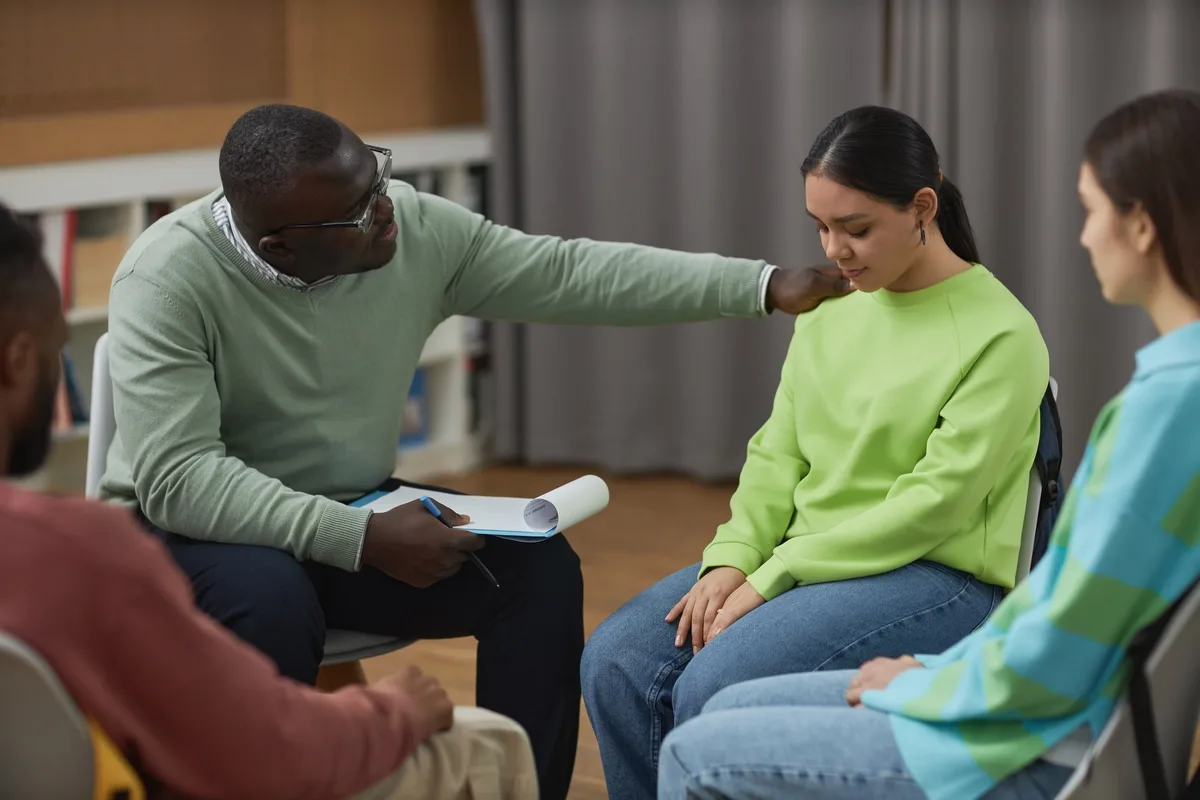24/7 Helpline:
(866) 899-221924/7 Helpline:
(866) 899-2219
Learn more about PTSD Treatment centers in Boons Camp
PTSD Treatment in Other Cities

Other Insurance Options

Choice Care Network

Carleon

Magellan

Health Partners

Health Net

Covered California

Optum

Premera

Self-pay options

AllWell

Ambetter

Group Health Incorporated

Magellan Health

MHNNet Behavioral Health

Amerigroup

Holman Group

UnitedHealth Group

Access to Recovery (ATR) Voucher

Aetna

Oxford















